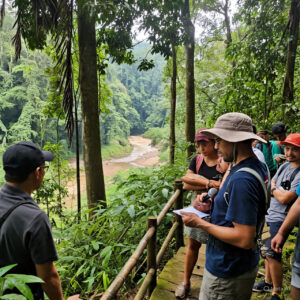
Kerala, famously known as God’s Own Country, is redefining travel through its bold push toward sustainable eco-tourism. By combining environmental stewardship, community empowerment, and responsible visitor experiences, the state is creating a powerful blueprint for the future of tourism in India. With robust government participation, rising community awareness, and eco-conscious initiatives, Kerala is leading a green tourism revolution.
Why Sustainable Eco-Tourism Matters
Tourism is one of Kerala’s biggest industries, but unplanned development, overcrowding, and pollution threaten its natural and cultural treasures. Sustainable eco-tourism offers a smarter way forward by:
-
Preserving natural ecosystems and wildlife
-
Empowering local communities with fair economic opportunities
-
Educating travelers on responsible practices
-
Reducing the environmental footprint of tourism
-
Enhancing cultural respect and authenticity
By prioritizing green tourism, Kerala is future-proofing its environment while enriching the travel experience.
Government’s Role in Building Green Tourism
The Kerala government has embraced sustainability through progressive policies and grassroots action. Key initiatives include:
✅ Eco-Certification Programs
Tourism businesses are encouraged to follow eco-friendly practices like using solar energy, organic waste composting, and plastic reduction to earn green certification.
✅ Responsible Tourism Mission (RT Mission)
This flagship project involves local communities in tourism planning and implementation—promoting inclusive growth and reducing environmental impact.
✅ Promoting Low-Impact Activities
Eco-tourism zones now offer canoeing, birdwatching, nature walks, and bamboo rafting to replace motorized, pollution-heavy experiences.
✅ Renewable Energy & Waste Management
Tourism hubs are being equipped with solar panels, biogas plants, and plastic-free policies to promote clean energy and reduce waste.
✅ Visitor Regulations in Protected Areas
Strict caps, timed entry, and mandatory guides ensure sensitive ecosystems like forests, wetlands, and coastal zones aren’t overwhelmed by visitors.
Community Participation: Locals as Eco-Champions
Kerala’s eco-tourism thrives because local communities are deeply involved. They serve not just as hosts, but as stewards of sustainability.
Women-Led Backwater Tours
In Alappuzha and Kumarakom, women-led cooperatives run canoe tours, homestays, and cooking classes, turning tourism into a livelihood while preserving traditions.
Eco Clubs in Schools
Students across Kerala are leading clean-up drives, plastic awareness campaigns, and mangrove planting programs—educating tourists and locals alike.
Tribal Involvement in Wildlife Parks
In areas like Wayanad and Periyar, indigenous communities are trained as wildlife guides, naturalists, and handicraft artisans, ensuring their heritage and forests are protected.
Farm-Based Agri-Tourism
Farmers invite tourists to learn about organic farming, traditional cooking, and local biodiversity—while boosting rural incomes.
Model Eco-Tourism Destinations in Kerala
Kerala is home to several green tourism models:
Kumarakom Bird Sanctuary
Eco-certified guides and plastic-free policies preserve this wetland haven, which is home to migratory birds and rich aquatic life.
Periyar Tiger Reserve
A shining example of community-based eco-tourism—visitors stay in tribal-run lodges and engage in low-impact safaris.
Varkala Beach
A plastic-free beach zone where volunteers patrol, clean-ups happen daily, and eco-shops thrive.
Athirapally Falls Eco-Trails
Trained local guides lead environmentally responsible treks, promoting awareness and conservation.
Public–Private Partnerships & Innovations
Kerala’s eco-tourism model also thrives due to collaborations with organizations and educational institutions.
-
NGOs help train guides and entrepreneurs in sustainable hospitality.
-
Universities provide research and data to strengthen eco-tourism planning.
-
Hotels partner with the government to phase out plastic and implement solar energy.
-
Community tourism startups receive eco-grants and business mentoring.
Digital Engagement and Responsible Travel Campaigns
To spread awareness, Kerala is using technology and social media effectively:
-
Eco-certified stays and tours are now listed on official tourism portals.
-
“Leave No Plastic” and “Travel Clean, Travel Green” pledges are promoted online.
-
Green travel itineraries—like “Backwater Stay + Canoe Ride” or “Nature Trek + Farm Visit”—are highlighted to attract eco-conscious tourists.
Positive Impact So Far
-
Economic empowerment of women, farmers, and tribal communities
-
Cleaner backwaters, greener hills, and protected wildlife habitats
-
Authentic experiences for tourists seeking meaningful travel
-
Stronger climate resilience in tourism due to local management
Challenges & Future Goals
While progress is strong, Kerala continues to work on:
-
Expanding eco-certification across more tourism operators
-
Consistent enforcement of green guidelines in remote destinations
-
Educating all tourists on low-impact behavior
-
Tracking measurable outcomes like carbon savings, biodiversity gains, and income equity
Next Steps:
-
100% ban on single-use plastics by 2027
-
Eco-tourism startup incubators
-
Community-led data collection and reporting
-
Visitor “eco-scores” on digital booking platform.
Conclusion: A Model for the World
Kerala’s eco-tourism model proves that sustainability and tourism can go hand in hand. With strong policy support, empowered communities, and educated travelers, the state is carving out a future where travel enriches lives without harming nature.
By continuing this green path, Kerala is not just protecting its beauty—it’s inspiring a global movement toward cleaner, fairer, and more meaningful tourism.

Leave a Reply